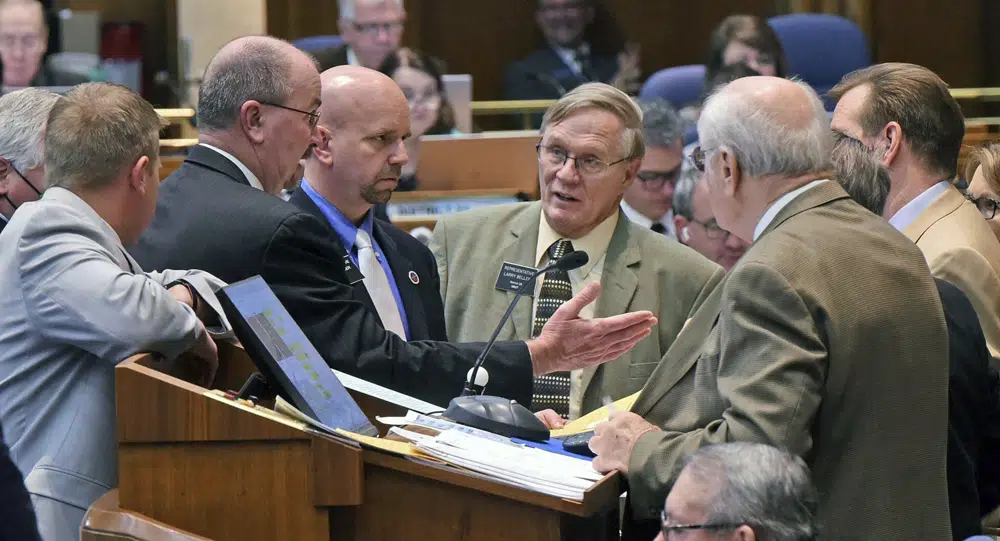BISMARCK, N.D. (AP) — When North Dakota restricted what bathrooms transgender students can use in public schools and universities this year, the school district in the state’s largest city promised to ignore the new rules. A Republican legislator then called for confiscating its state funding, but the law doesn’t include that possibility.
The defiance in Fargo shows that it’s not exactly clear how bathroom laws will play out in local communities after being enacted in at least 10 states with Republican-controlled legislatures.
Kansas’ GOP attorney general planned to discuss his state’s law Monday, five days before it was to take effect. His view is likely be challenged.
Even Florida’s law, allowing the state to threaten the licenses of educators who don’t comply, says a transgender student or staffer must first be asked to leave a restroom and refuse.
Some schools already have gender-neutral bathrooms and changing spaces or allow trans students to use staff restrooms. In others, trans students try to make it through the day without using a restroom.
Advocates for transgender people worry that bullying will increase.
“Especially in smaller towns where, say, that bullying could be really bad because transgender individuals are really misunderstood,” said Caedmon Marx, outreach chair for LGBTQ+ advocacy group Dakota OutRight and a 23-year-old nonbinary Bismarck State University student.
While the laws focus mostly on transgender students, critics believe they also encourage harassment of trans adults at work and while they’re shopping and eating out — and even harassment of cisgender people, or those whose gender identity matches the sex they were assigned at birth.
“By men, I get harassed for going into a women’s restroom because people think that — the way I look, the way I dress, they way my hair is — that I’m a man,” Kansas state Rep. Susan Ruiz, a Kansas City-area Democrat and a lesbian, said during a debate over the Kansas bathroom measure. “This is going to just open up the doors for that.”
North Carolina Republicans enacted a bathroom law in 2016, but rolled it back following protests and economic boycotts. A new wave of anti-LGBTQ+ measures began building in 2020, when Idaho enacted the nation’s first law barring transgender athletes from girls and women’s sports. State lawmakers across the U.S. considered hundreds of proposals this year.
Supporters argue that bathroom laws protect the privacy of cisgender women and girls. They’ve also pitched the laws as safety measures, without evidence of threats or assaults by transgender people against cisgender women or girls.




